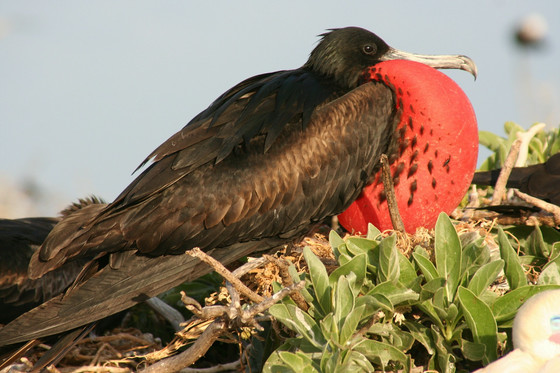Do animals exist that can live without sleeping at all? Revealed that fly and jellyfish sleep well

Many creatures, including humans, need " sleep " to temporarily stop the activity of the brain and body. Human beings are studying sleep since ancient Greece, but the mechanism and significance of sleep is not completely clarified even in modern times. Nevertheless, from various experiments, I know that "if an animal falls into sleep deprivation over a long period of time, health will deteriorate and the worst death can result." About the research to explore the relationship between such animals and sleep, Live Science of science media is summarized.
Can Any Animal Survive Without Sleep?
https://www.livescience.com/64873-can-animals-survive-without-sleep.html
According to a study by Gigliola Grassi-Zucconi, a cell biologist at the University of Perugia, research on sleep in the field of modern medicine dates back to the 1890s. Marie de Manacéïne, one of the few female doctors in the Russian empire , made the first animal experiment related to sleep, "What will happen if we can not sleep for a few days leaving the puppy awake for days?" It was.
In the experiment, it seems that the puppy died in several days keeping sleep deprived. De Manacéïne dissected after death and found that a serious lesion had occurred in the pup's brain. de Manacéïne says, "We want to live as long as possible, but on the other hand we have been sacrificed by sleeping one-third of our lives."

Also, in 1898, Italian physiologists Lamberto Daddi and Giulio Tarozzi made experiments to make dogs sleep poorly by walking and taking a walk at all times. Despite being fed adequately, the dog died after 9 to 17 days, and Daddi reported that degeneration was found in its brain cells and nerve cells.
It is known that sleep can be seen not only in vertebrates such as humans and dogs but also in insects which are invertebrates. A research team headed by Imperial College London neurobiologist Giorgio Gilestro monitored the female sleeping habits of Drosophila melanogaster where the females of other animals slept on average 300 minutes per day against, female Drosophila melanogaster that did not sleep only 72 minutes per day was found .

by André Karwath
The research team also conducted an experiment that took away 96% of sleep time by rotating the tube containing Drosophila melanogaster. Then, the mortality rate of the population forced to sleep deprivation was almost the same as the mortality rate of the population who had been sleeping normally, and it was not observed that the sleep deprivation hindered the life activity of Drosophila melanogaster He said that. In other words, it can be said that female Drosophila females can maintain life activities even with only 3 minutes of sleep.
On the other hand, "sleep rebound" that it was supposed to sleep though it was supposed to be sleeping but could not sleep, it became longer by the lack of sleeping time later was said to have been seen in flies. Although the amount of sleep rebound did not completely correspond to the amount of sleep deprivation, "Although sleep is extremely small but essential for flies, it is controlled mainly by circadian rhythm I can say, "Mr. Gilestro argues.
A similar study is also done in jellyfish. The research team at the California Institute of Technology reported observing the state of dormancy even in the scattered nervous system , and reported that the sleep rebound was confirmed by experiments. If the significance of sleep is "brain dormancy" then jellyfish that does not have a brain does not need to sleep, and the research team argues that "sleeping does not require the brain".
Experiment shows that sleeping jellyfish also has no brain - GIGAZINE

In Maxplank Institute for Ornithology in Germany, we measured the electrical activity of the brain with a small device attached to the giant crunching inhabitants of the Galapagos Islands. Then it turned out that even though it included time spent monitoring on land, I slept only 42 minutes on average a day.

In addition, although the flying ability high oak county can keep flying over the sea for hundreds of kilometers, it is understood that while sleeping, half of the brain is awake while the other half is sleeping It was. In addition, it is said that both sleep states were in spite of being in flight, so we can see that the body's diapause and the brain's dormancy are different. Scientists are staring at it because there are such special sleeping methods that migratory birds such as Amateba birds have been flying for many months without landing at all.
Niels Rattenborg, one of the research members, says, "Animals are said to require sleep, but some animals seem to be able to live even with much less sleeping time than humans, however sleep time Even in short animals, it is probably impossible to keep living completely without falling asleep, so far the experiment shows that the minimum amount of sleep is present in animals. "
Related Posts:






